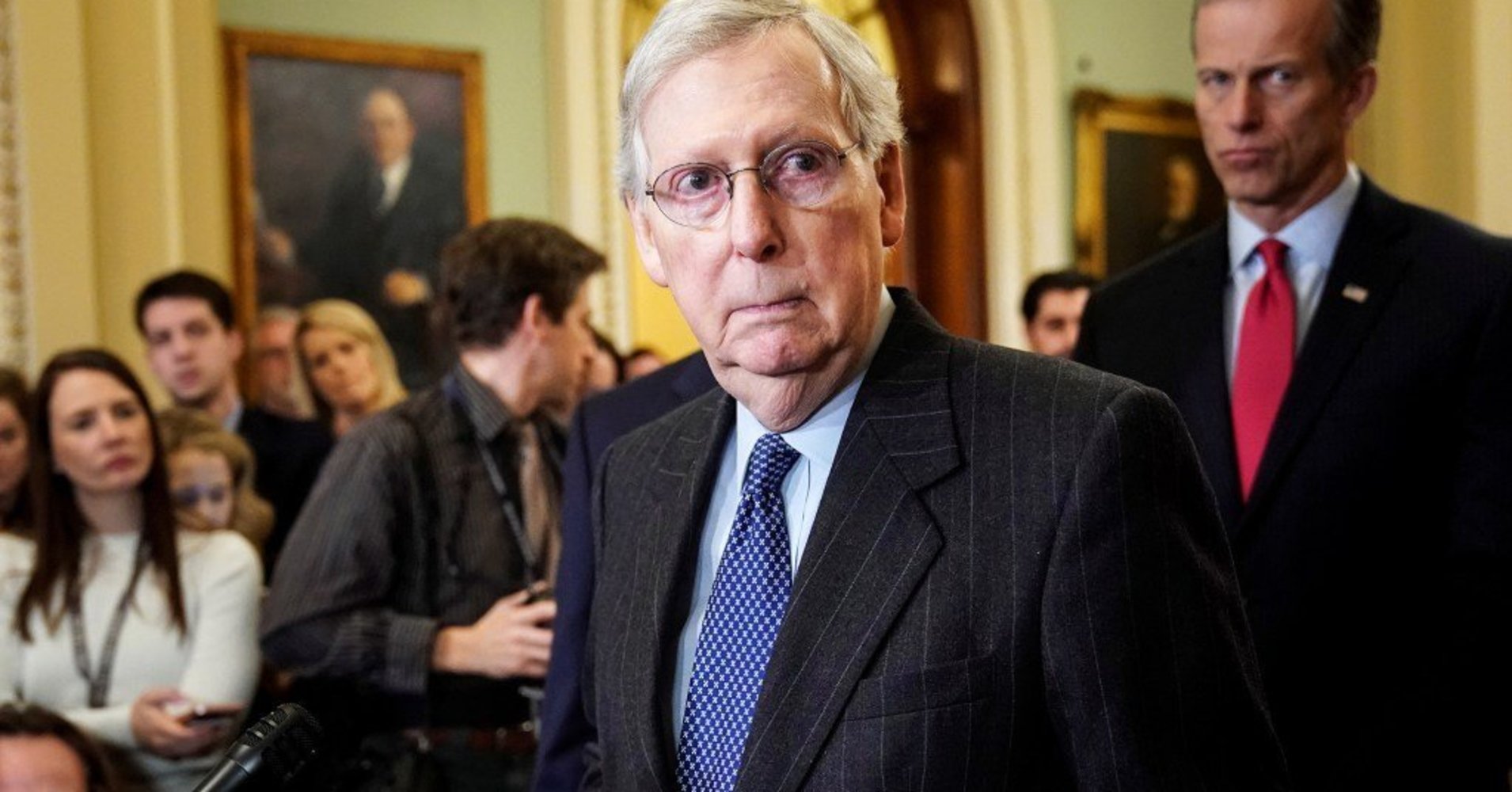[ad_1]

WASHINGTON ― He changed the rules to make it easier to confirm President Donald Trump’s Supreme Court picks. He tossed out Senate traditions to make it easier to confirm Trump’s circuit judges. So, naturally, Senate Majority Leader Mitch McConnell (R-Ky.) wants to adjust the rules again to make it easier to confirm the rest of Trump’s nominees to lifetime seats on federal courts.
The Senate will vote this week to reduce its debate time for most nominees ― district court judges and lower-level executive nominees ― from 30 hours to two hours. This will not apply to Cabinet secretaries, Supreme Court nominees or circuit court nominees.
Without a whiff of irony, McConnell, whose greatest legacy is denying a Supreme Court seat and dozens of other federal court seats to President Barack Obama, said Thursday that the rule change is necessary because of Democrats’ “unprecedented obstruction” of Trump’s nominees.
“Obstruction for obstruction’s sake,” bemoaned McConnell, who was so Machiavellian about denying Obama the ability to confirm judges that he drove Republicans to block their own nominees and fueled a vacancy crisis on federal courts.
It would take 67 votes to make the rules change. All 45 Democrats, along with the two independent senators who caucus with them, are expected to vote against it. But the 53 Republicans could still get it done if they invoke the so-called “nuclear option,” a more confrontational approach that would allow them to change the rules with a simple majority, or 51 votes. It’s not clear if McConnell is prepared to go nuclear to make the change, but he’s previously suggested that he is.
Since Trump became president, McConnell has used the nuclear option to lower the vote threshold for confirming Supreme Court nominees from 60 to a simple majority. He’s also endorsed repeated violations of the “blue slip” rule, a Senate tradition of only moving forward with a judicial nominee when both of his or her home-state senators sign off on it.
Those changes, along with his latest push to make another rule change, are all part of McConnell’s grand plan: to use Trump’s presidency to put piles of young, anti-abortion, anti-LGBTQ, anti-voting rights ideologues into lifetime federal court seats before Trump is up for reelection in 2020.
“He just wants to confirm as many as possible in case Trump loses,” said Carl Tobias, a University of Richmond law professor and an expert on judicial nominations.
McConnell’s approach has always been to manipulate Senate rules when it helps him and then change Senate rules when the tables turn.
Senate Minority Leader Chuck Schumer (D-N.Y.)
McConnell and the White House have made filling circuit court vacancies their top priority so far, and they’ve had quite a run. The Senate has confirmed 37 circuit judges to date. That’s so many circuit judges ― more than any other president by this point in his first term ― that 1 in 5 seats on circuit courts is filled by a judge nominated by Trump.
They’ve focused on circuit courts because these courts often have the last word in federal cases. The Supreme Court only hears about 100 to 150 appeals from the more than 7,000 cases that come before the nation’s 13 circuit courts each year.
But now McConnell is turning his attention to district courts, where there are a whopping 129 vacancies. Democrats are likely to have more say in who the nominees are for these court seats, as Republicans appear willing to honor the blue-slip rule for them.
“Many are less ideological and conservative than the circuit picks and are recommended by home-state senators who usually suggest them because they are competent to move the cases,” said Tobias. “For example, a number are magistrate judges or state court judges.”
If Republicans succeed in changing the rules this week, they could conceivably fill most empty district court seats during Trump’s first term, leaving few to fill after 2020, when a Democrat might be in the White House.
Senate Democrats aren’t thrilled by any of this, but there’s little they can do in the minority ― especially if McConnell keeps weakening the few tools afforded to them to block judicial nominees they don’t support.
“McConnell’s approach has always been to manipulate Senate rules when it helps him and then change Senate rules when the tables turn,” Senate Minority Leader Chuck Schumer (D-N.Y.) said in a statement. “This is just another step in his effort to limit the rights of the minority and cede authority to the administration.”
[ad_2]
Source link

